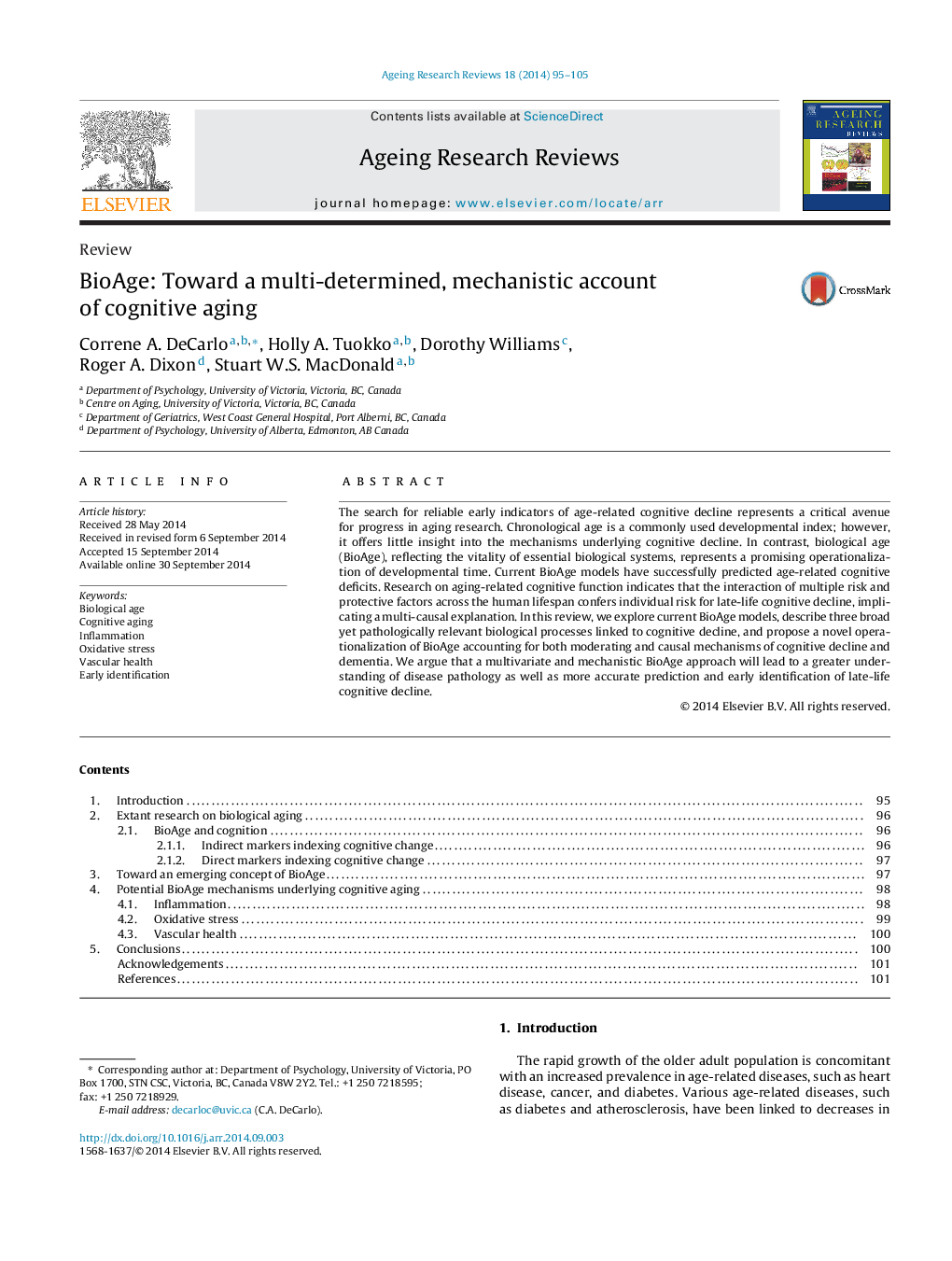| Article ID | Journal | Published Year | Pages | File Type |
|---|---|---|---|---|
| 1902239 | Ageing Research Reviews | 2014 | 11 Pages |
•A theoretical step forward in identifying early markers of cognitive decline.•Emphasizes multivariate models for predicting cognitive impairment in late life.•Identifies theoretically relevant biological processes of cognitive decline.•Proposition of a novel BioAge operationalization of late-life cognitive decline.
The search for reliable early indicators of age-related cognitive decline represents a critical avenue for progress in aging research. Chronological age is a commonly used developmental index; however, it offers little insight into the mechanisms underlying cognitive decline. In contrast, biological age (BioAge), reflecting the vitality of essential biological systems, represents a promising operationalization of developmental time. Current BioAge models have successfully predicted age-related cognitive deficits. Research on aging-related cognitive function indicates that the interaction of multiple risk and protective factors across the human lifespan confers individual risk for late-life cognitive decline, implicating a multi-causal explanation. In this review, we explore current BioAge models, describe three broad yet pathologically relevant biological processes linked to cognitive decline, and propose a novel operationalization of BioAge accounting for both moderating and causal mechanisms of cognitive decline and dementia. We argue that a multivariate and mechanistic BioAge approach will lead to a greater understanding of disease pathology as well as more accurate prediction and early identification of late-life cognitive decline.
